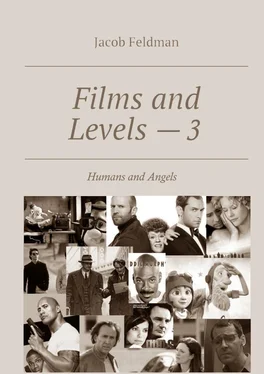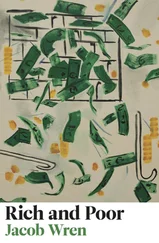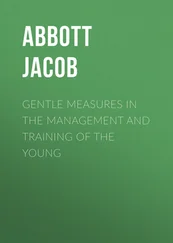Jacob Feldman - Films and Levels – 3. Humans and Angels
Здесь есть возможность читать онлайн «Jacob Feldman - Films and Levels – 3. Humans and Angels» — ознакомительный отрывок электронной книги совершенно бесплатно, а после прочтения отрывка купить полную версию. В некоторых случаях можно слушать аудио, скачать через торрент в формате fb2 и присутствует краткое содержание. ISBN: , Издательство: Литагент Ридеро, Жанр: Критика, psy_generic, на русском языке. Описание произведения, (предисловие) а так же отзывы посетителей доступны на портале библиотеки ЛибКат.
- Название:Films and Levels – 3. Humans and Angels
- Автор:
- Издательство:Литагент Ридеро
- Жанр:
- Год:неизвестен
- ISBN:9785448391170
- Рейтинг книги:4 / 5. Голосов: 1
-
Избранное:Добавить в избранное
- Отзывы:
-
Ваша оценка:
- 80
- 1
- 2
- 3
- 4
- 5
Films and Levels – 3. Humans and Angels: краткое содержание, описание и аннотация
Предлагаем к чтению аннотацию, описание, краткое содержание или предисловие (зависит от того, что написал сам автор книги «Films and Levels – 3. Humans and Angels»). Если вы не нашли необходимую информацию о книге — напишите в комментариях, мы постараемся отыскать её.
Films and Levels – 3. Humans and Angels — читать онлайн ознакомительный отрывок
Ниже представлен текст книги, разбитый по страницам. Система сохранения места последней прочитанной страницы, позволяет с удобством читать онлайн бесплатно книгу «Films and Levels – 3. Humans and Angels», без необходимости каждый раз заново искать на чём Вы остановились. Поставьте закладку, и сможете в любой момент перейти на страницу, на которой закончили чтение.
Интервал:
Закладка:
Films and Levels – 3
Humans and Angels
Jacob Feldman
© Jacob Feldman, 2017
ISBN 978-5-4483-9117-0
Создано в интеллектуальной издательской системе Ridero
Preface to the English edition
Glaring effulgence of Donald Trump from the political Olymp does not change the fact that Vladimir Putin and his propaganda-machine today is now the main threat to the all civilized world. The duty of every intelligent man now is to speak out against this machine, to beat her to death. This is the first theme of the entire series.
But if this is a war, if we face a war machine – how can we oppose it? We can counter it with the latest and strongest methods of data analysis – of information emitted, transmitted, distributed, perceived, understood.
At the beginning of the second book, I have used this image: the broadcast runs at a certain frequency, and the receiver should tune to that frequency.
Human communication always runs at certain frequencies – levels. Only in the human communication has precisely 8 available levels, numbered from 1 to 8. The first book describes it as a theoretical model. Next books gave examples of movies on all levels and with various combinations of levels.
The second leading motif of the series is as follows.
Russian speaking intelligent-and-educated Homo sapiens had not found yet a place where they could unite all good people – and keep out idiots and crooks.
The problem is not technical; it is about meanings and values. I would really like to create such a platform – with books – and with a discussion of these books.
Just as cities are usually built near the water, and industrial enterprises – near cheap sources of energy, platforms for serious discussion of serious issues should be located – where? Next to the new global producers of meanings.
Today, the world’s best producers of a global sense are the American moviemakers. Analyzing the conflicts and problems embodied in the American cinema over the past 30 years, I launch new discussions.
This sets the semantic nature of the place – speaking in the language of my previous books – the sixth and the eighth level of communication and thinking. Sixth – to know how to articulate their thoughts and justify them. Eighth – to know how to take into account the interests and opinions of as many potential interlocutors, opponents.
Philosophy – from the time of Socrates – more often pretends to be an environment of free dialogue than it truly is. I assume that Socrates himself was fond of free discussion, but Socrates of Plato’s dialogues acts as a skilled manipulator. Manipulation and free dialogue are incompatible.
By the way, low culture of dialogue has led the Western world to the two shocking discoveries about itself: neither Trump nor Brexit have been predicted by sociologists. Why? Because one half of society were persistently ignoring the other half – and only now the first half realizes that the other half exists too.
So two goals – the resistance to evil and uniting the forces of good in the civilized (6—8) dialog – converge – and that makes me move on, publishing one book after another.
Children and Adults
The Little Prince, 2015
Synopsis
The little girl lives with her mother. They apply for a prestigious school for the girl, but fail at interview.
Now Mother insists that girl must work all summer to get ready for the next try. Mother declares hard schedule for the girl. But she goes to work, and the girl accidentally happens to visit an old neighbor, who tells her «tale of the Little Prince.»
The old man lives alone, he has no friends or relatives, nobody in all the world. One evening he is taken to the hospital. Early in the morning, the girl makes the mother to visit the old man.
Between these two events, she sleeps and has a dream in which she meets a characters of the tale, meet the Prince and help him to return home.
Between tale and reality
The filmmakers took over a difficult task: take a classic literary tale of Antoine de Saint-Exupery, written in 1943, and incorporate it into a modern story of life of the little American girl.
This is a very hard task. To solve it they have to sacrifice what I call «self-consistency». On this occasion, I had a few questions. On some of them, I thought, I found answers, to other – no. These questions and these answers I lay out them below.
First question. The girl was not enrolled at school after the first interview, but she was accepted without another interview later. How it could be? To answer this question we need some knowledge of American life.
As a rule, children who live in a certain district are getting enrolled into this district’s school without taking exams. Children from outside the district cannot get into the school anyway. The case that a «nonresidents» have an opportunity to get into this specific school through the interview is a rare exception.
Therefore, plan B was about a moving to this specific district. Good district school is usually a sign of rich households’ area. Hence, rent a house is more expensive here. Mom’s salary is the only source of family’s budget, Dad does not pay. To keep within the budget, the mother decides to move into the only house with relatively low rent. Rent is low because the house has a bad reputation. And this is because of old neighbor which is presumably mad.
The old neighbor’s house is very old too. Probably, all old houses around were destroyed some years ago and new standard comfortable houses were built instead. A similar situation is presented in the film «Up». It is likely that the old man lives here all his life.
Second question . It seems that the old man never had a wife, children, at least in the film there is not a word about them, about the parents or other friends or relatives. But the old man is not upset, he builds his fairy world for himself «as he was a child.» That is crazy.
But he does not want to be crazy. He tries to make friends with everyone who lives next door, but they refer to him as to the merits of a lower order. It is possible that the old man is rare – by the standards of modern America – taking a shower, and he smells bad.
Third question. The girl has a cellphone; the old man has not, even a wired one. How he gets a food? He has no driver license. Does he walk to the food store? No. The food store is too far from the house. He does not walk far. What does he eat? We know about sandwich he keeps in a pocket for many days. Probably somebody had have license and drove the car, bought and brought food. Who? His wife? Probably not long ago she died. Probably. Probably the only food in the house were from that time.
Who called from him to an ambulance? Nobody visited him, and he has no phone in the house. Maybe he fainted from hunger directly on the postman? And the postman called to the ambulance? Maybe.
The fourth question. Book pages were being crumpled and torn before, but they look like new in the gift copy.
The fifth question. When Mom discovers the deception, and makes the girl to study round the clock – does she stay at home or go to office as usual? If she goes to office, then how she provides the real pressure? Unclear.
The sixth question. On the last day of vacation girl returns home with mother. From where? From the store, where they bought a school uniform? Maybe.
The seventh question. When a girl comes to school and there at the blackboard is trying to tell the audience about the elephant and the boa constrictor, the faces of teachers and children are as sad and hopeless as that of officials in a dream. Does the author understand, that here there is a problem, the solution of which he does not know?
Читать дальшеИнтервал:
Закладка:
Похожие книги на «Films and Levels – 3. Humans and Angels»
Представляем Вашему вниманию похожие книги на «Films and Levels – 3. Humans and Angels» списком для выбора. Мы отобрали схожую по названию и смыслу литературу в надежде предоставить читателям больше вариантов отыскать новые, интересные, ещё непрочитанные произведения.
Обсуждение, отзывы о книге «Films and Levels – 3. Humans and Angels» и просто собственные мнения читателей. Оставьте ваши комментарии, напишите, что Вы думаете о произведении, его смысле или главных героях. Укажите что конкретно понравилось, а что нет, и почему Вы так считаете.












